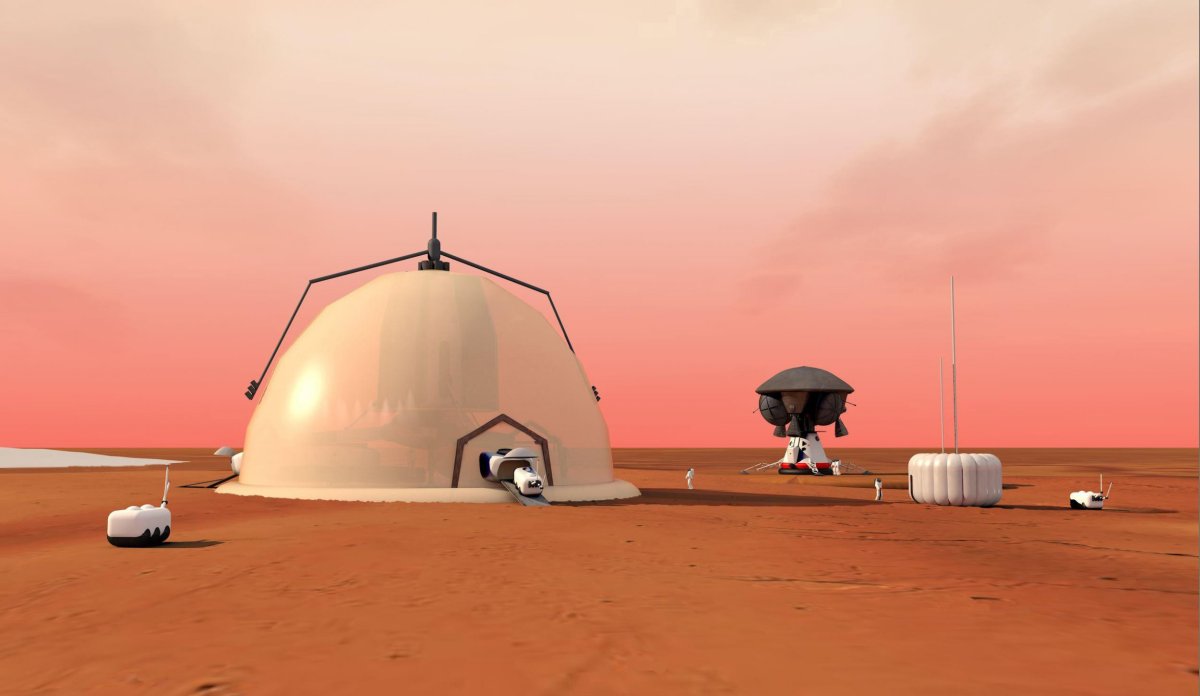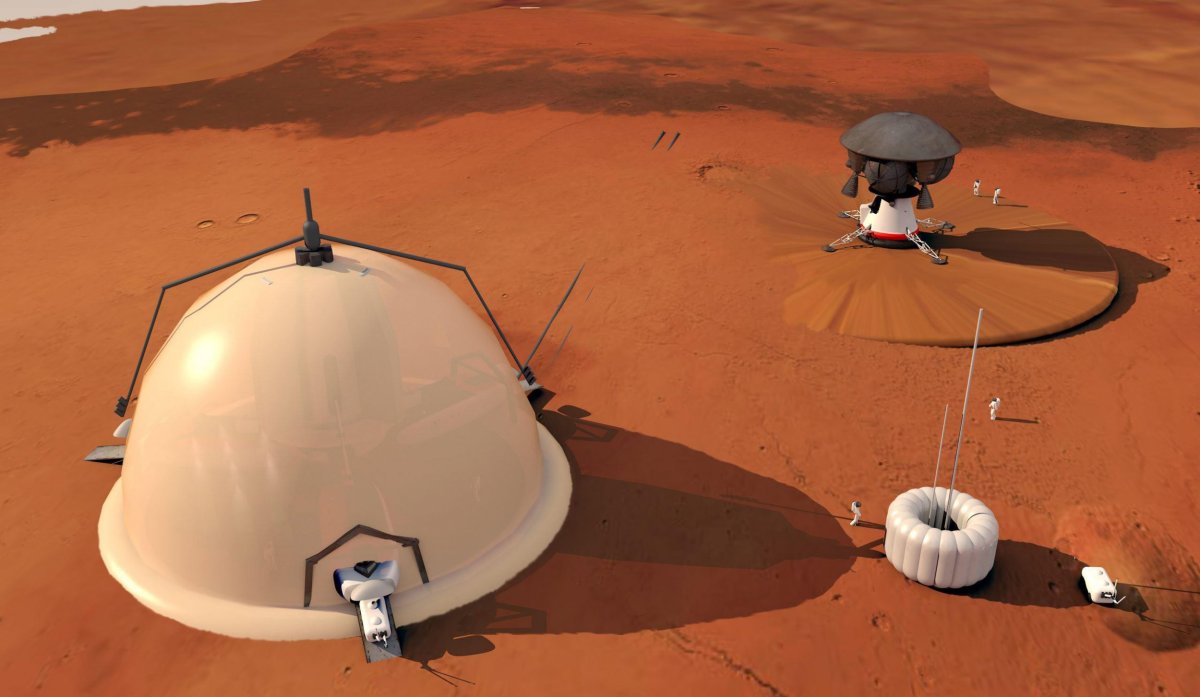A new concept for a Mars base has been announced by scientists from Switzerland—a giant igloo. The 41ft-high structure would provide researchers with a long-term self-sustaining habitat from which they could explore the Red Planet and the solar system beyond, experts at the École Polytechnique Fédérale de Lausanne (EPFL) have said.
The design was presented at the International Tourism Talks of the Future that recently took place in France. Further details will be released in a forthcoming edition of the journal Acta Astronautica.
Space agencies and private companies are currently putting together their plans for a Martian habitat. Earlier this year, NASA announced the winners of a competition that set out to create a 3D printed habitat that could be used on the Red Planet, while Elon Musk famously set out his own plans for a Mars colony in the journal New Space last year.

In their newly released design, the EPFL scientists describe a 41ft-tall, 16ft-wide "igloo." There would be a central living space and three capsules that would serve as airlocks between the inside and out. The dome would be made of polyethylene fiber and encased in a 10ft-thick shell of ice. This would provide an extra barrier to protect astronauts against radiation and micrometeoroids—tiny particles of space rock that do not burn up in a planet's atmosphere and could pose a significant risk to humans working on Mars.
The EPFL design was based around the idea that a six-person crew would be sent out to Mars during the polar summer, when there will be 288 days of continuous light. "The poles may pose more challenges in the beginning, but they are the best location for the long-term since they harbor natural resources that we may be able to use," Anne-Marlene Rüede, lead author of the study, said in a statement.
Mars' poles also offer the best chance at finding alien life—past or present. They have layered deposits of ice and dust that have built up over thousands of years. If there is evidence of life to be found, it may well be there.
So the team set about creating a habitat that could be established at the Martian north pole. They used technologies based on the idea that they would test out the habitat 20 years from now.

Outlining their plan, the researchers said robots would be sent out first to set up a basic living space where they could test out the natural resources available. In theory, because there is ice at the poles, scientists could produce water, oxygen and nitrogen. They could also use the CO2 in the air and soil to make materials like brick and glass, along with fuels like hydrogen and methanol.
All being well, a crew of six would then be sent in for a nine-month stint. If they are able to fully make use of the resources available, the EPFL team says the base could become a self-sustaining long-duration habitat.
Rüede said: "We would need to conduct an initial mission to try everything out for the first time. And the better that initial mission is thought out, the faster we will be able to get things going and move on to colonization."
Uncommon Knowledge
Newsweek is committed to challenging conventional wisdom and finding connections in the search for common ground.
Newsweek is committed to challenging conventional wisdom and finding connections in the search for common ground.
About the writer
Hannah Osborne is Nesweek's Science Editor, based in London, UK. Hannah joined Newsweek in 2017 from IBTimes UK. She is ... Read more
To read how Newsweek uses AI as a newsroom tool, Click here.








